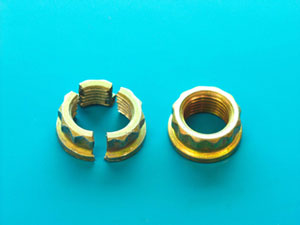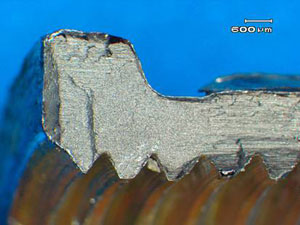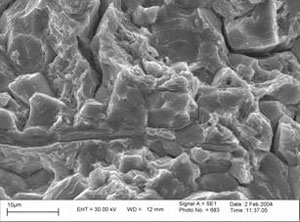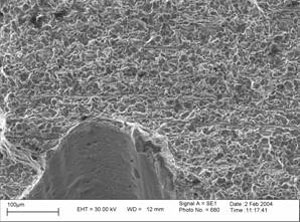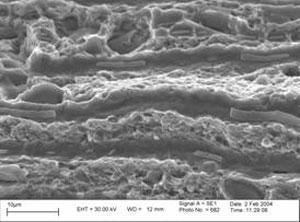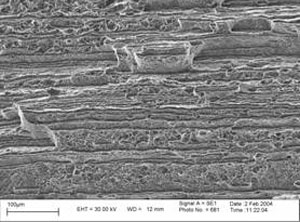During the assembly of Teledyne Continental Motors TSIO-520 M engine s/n 291531R, a number of twelve point nuts (p/n 652541) were found fractured 14 hours after they had been tightened by applying the specified torque (65.8 67.5 ft lbs). The engine assembly process had not been completed.
It was reported that the nuts had been replated with cadmium in accordance with MAF Aviation Services Engineering Order 0071-00 E1. One failed nut and a serviceable nut from the same batch were made available to the ATSB for examination.
Fracture of the failed nut occurred on several longitudinal planes. Fracture initiated from regions of intergranular cracking in the increased section created by the nut flange. Final fracture occurred in a ductile manner.
These features are typical of hydrogen-induced delayed cracking (hydrogen embrittlement), a condition resulting from the presence of hydrogen in the steel and a sustained tensile stress. The effect of thread shape creates a sustained tensile hoop (circumferential) stress in a tightened nut. A particular hazard of cadmium plating high strength steels is the absorption of hydrogen into the base metal. This hazard is countered by baking the parts after plating.
In order to prevent recurrence it is necessary to establish:
- If the hydrogen-removal baking heat treatment had been applied to the nuts.
- If the baking process was controlled in accordance with process specifications. For example, was the temperature distribution throughout the batch uniform, and was the time of exposure to the specified temperature the same for all nuts in the batch.
- If the engineering work order had taken into consideration that the twelve-point nuts are heat treated to a higher strength than the six-point nuts they replace. Longer baking periods may be required to eliminate the hazard of hydrogen embrittlement in higher strength steels.



